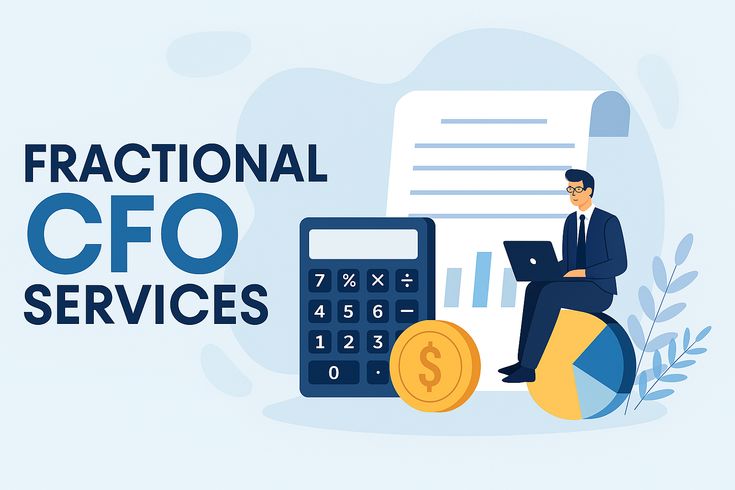Bookkeeping for construction companies - why it’s important to have your books in order
✅ Information Verified by a CPA

Construction businesses handle many tasks at once. Companies manage crews, order materials, track labor hours, and handle multiple clients. Each project has its own costs, and payments are sometimes delayed or partially held as retainage.
Keeping clear financial records helps construction companies see where money is going and how much they are earning. Bookkeeping lets owners track project costs, manage cash flow, and make decisions based on real numbers.
Keeping organized records ensures taxes are filed correctly and reduces the risk of errors or penalties. For construction companies, proper bookkeeping helps maintain financial stability, track project performance, and support business decisions.
Why Construction Accounting is Different?
Construction accounting is not like regular business accounting. Project usually take months, involve multiple subcontractors, and require tracking labor, materials, and equipment for each job. Payments are delayed, and retainage holds back a portion of revenue.
Thin margins make every dollar count. A small mistake in tracking costs or missing a payment turns a profitable project into a loss.
Accurate bookkeeping helps construction companies know exactly how each project is performing. It allows them to manage cash flow, make smart business decisions, plan new jobs, set correct bids, and maintain a healthy financial position.
The Unique Accounting Obstacles Facing Builders
Construction accounting is different from regular business accounting. Project last months, involve multiple subcontractors, and require tracking labor, materials, and equipment for each job.
In the construction sector, payments are little late, and clients usually hold back some money until the project is done. Due to small profit margins, one missed cost or any delay in payment turns a profitable job into a loss.
Mastering Retainage: A Major Cash Flow Factor
Retainage in construction is the portion of payment a client holds back till the project is completed. Construction companies face two sides: retainage receivable (money clients owe) and retainage payable (money owed to subcontractors).
If retainage isn’t tracked correctly, cash flow suffers. Keeping clear records helps businesses see how much money they have, what’s still due, and when it will be paid. Managing retainage properly keeps projects funded and work running without delays.
Accurate Job Costing, Not Just Expense Tracking
Each construction project has multiple expenses, such as labor, materials, subcontractors, and equipment. Job-level accounting tracks all these costs individually, these are very different from general accounting that usually group the expenses together.
Recording costs at this level shows exactly which projects are profitable and identifies areas where spending can be reduced. It also allows accurate pricing for future projects and helps in making decisions based on real data rather than estimates.
Managing Different Contract Types and Invoicing
Construction companies often work with fixed-price or cost-plus contracts. Each contract requires different accounting approaches.
Fixed-price projects demand strict cost tracking to maintain profit margins, while cost-plus contracts need careful recording of billable costs. Proper invoicing ensures that the business recognizes revenue correctly, meets client requirements, and keeps cash flow predictable.
The Five Critical Benefits of Clean Books
Keeping clean and accurate books provides many advantages for construction businesses. Here are five key benefits that help contractors manage cash flow, protect profits, and make better financial decisions.
Preventing Cash Flow Crises
Accurate books show construction businesses how much money they have and when payments will arrive. A report found that 84% of construction companies have experienced cash flow issues, with 17% facing them regularly.
Tracking retainage, invoices, and bills ensures there is enough cash for payroll, materials, and subcontractors. This prevents shortages that could stall projects or delay operations. This helps plan for slower months and keeps the business running smoothly.
Maximizing Project Profitability
A detailed financial records help contractors see which projects are profitable. Contractors identifies areas where the capital is wasted or misused by tracking - labor hours, material costs, equipment use, and subcontractor payments for each job.
For example, a small delay in material delivery or unexpected overtime causes a big loss if things are not monitored. Tracking costs as they happen helps contractors make quick adjustments, such as moving resources, managing expenses, or changing schedules.
Optimizing Compliance and Tax Filing
Construction businesses deal with complex tax rules and regulations. A good bookkeeping separates subcontractor payments, labor costs, and material expenses, to make tax preparation easier. Proper and detailed records reduce the risk of audits, fines, or penalties.
Construction contractors also generate reports quickly to verify deductions, retainage, or employee classifications, to stay compliant with industry standards.
Securing Financing and Bonding
Construction companies need loans, lines of credit, and bonding to take on bigger projects. Lenders and surety companies check financial statements to see if a business can handle its money responsibly.
Accurate bookkeeping show exactly how much cash is available, such as how debts are being managed, and whether bills are paid on time. Contractors with clear, organized records demonstrate reliability. This helps them get approval faster, negotiate better terms, and show that their business can handle the risks of larger jobs.
Informed Decision-Making and Growth
Contractors can clearly see which job is in profit and which one is in loss by tracking the cost of every project that includes labor, material, subcontractors, equipment etc. This helps construction businesses plan for future contract, set accurate bid and looks after the expenses.
The Solution: Specialized Accounting Tools and Support
Construction accounting comes with unique challenges like, tracking job costs, managing retainage and labor. Generic accounting tools often fail to handle these tasks, that makes it difficult for contractors to see the full financial picture.
By Using specialized software and professional support contractors can easily manage bookkeeping, improve accuracy, and help businesses stay profitable.
The Need for Specialized Software
Generic accounting software manages basic finances but maximum times these tools struggle with construction-specific needs. Job costing, tracking materials, labor, and retainage require tools built for contractors.
Customized accounting software for construction provides features that make these daily tasks easier. The best accounting software makes sure that every project’s financial details are captured correctly, which will ultimately reduce the human mistakes and protects profits.
Key Software Features to Look For
When selecting construction accounting software, consider:
- Integration with project management: Links schedules, budgets, and invoices for real-time insight.
- Job costing modules: Tracks costs for labor, materials, subcontractors, and equipment per project.
- Retainage tracking functionality: Monitors amounts held back until project completion to maintain cash flow.
Partnering with Construction Finance Experts
Even the best software cannot replace expert guidance. A construction accountant or a bookkeeper for construction company will look that the records are accurate, compliant, and optimized.
Atheneum is one of the top construction accounting services that provides customer support, helps businesses manage retainage, job costs, and reporting efficiently. Partnering with professionals reduces errors, speeds up audits, and frees contractors to focus on completing projects successfully.
Conclusion
It is essential to keep accurate bookkeeping and financial records for construction companies. Organized books help contractors track project costs, manage cash flow, stay compliant with tax rules, that will help them make smarter business decisions. Clean financials also make it easier to secure financing, plan for growth, and maintain healthy profit margins across every project.
If your construction business wants to reduce errors, gain full visibility into project performance, and protect profits, it’s time to get professional support. Book a consultation with Atheneum today and let our construction accounting experts guide you in setting up reliable systems, tracking retainage, and managing job costs efficiently. With the right guidance, your business can run smoothly, grow confidently, and focus on completing projects successfully.
FAQs
What is the single biggest risk of using generic accounting software for construction?
Generic accounting software cannot handle construction-specific tasks like job costing, retainage tracking, or managing multiple subcontractors. Without these features, contractors may miss expenses, miscalculate profits, or experience cash flow issues, which can lead to financial losses.
How is a construction accountant different from a general business accountant?
A construction accountant specializes in the construction industry. They understand project-based accounting, track labor, materials, equipment, and retainage for each job, whereas general accountants, looks after accurate reporting for contracts, compliance, and profitability specific to construction projects.
As a small contractor, how often should financial reports be reviewed?
Construction businesses should review financial reports at least monthly. Tracking job costs, cash flow, and outstanding retainage regularly helps spot issues early, make informed decisions, and keep projects on budget.
How much does it typically cost to hire specialized bookkeeping services for construction?
Costs vary depending on project volume, company size, and service scope. Small contractors may spend a few hundred dollars per month, while larger businesses could pay more for full-service bookkeeping and construction accounting support. The investment often pays off through better cash flow and reduced errors.
What is the most crucial financial metric a construction company should track daily?
Daily tracking of cash flow and accounts receivable, including retainage, is critical. Knowing exactly how much money is available and when payments are due helps contractors maintain smooth operations, pay staff and subcontractors on time, and avoid project delays.
More stories of success
Explore how Atheneum has helped other businesses achieve their goals through innovative strategies and impactful solutions.

Tax Prep for Electricians: How to Handle Tools, Trucks, and Travel Cost
Connect with our experienced CFO advisory team
Get Insights
Submit the contact form to receive tailored financial insights and practical guidance from our team
Seamless Experience
Share your needs through the form for quick responses and smooth onboarding support.
Pricing That Makes Sense
After reviewing your inquiry, we provide transparent, practical pricing aligned with your business financial needs.










%201.jpg)